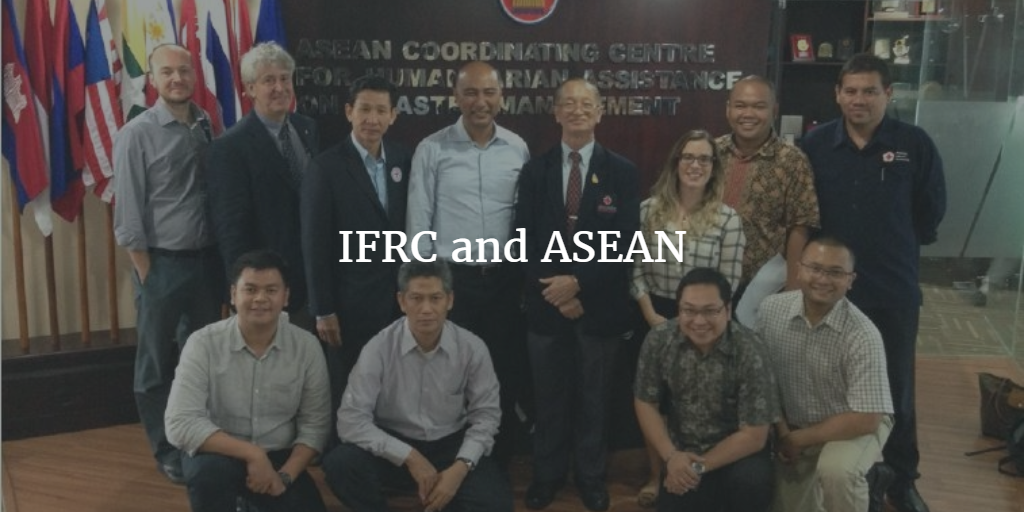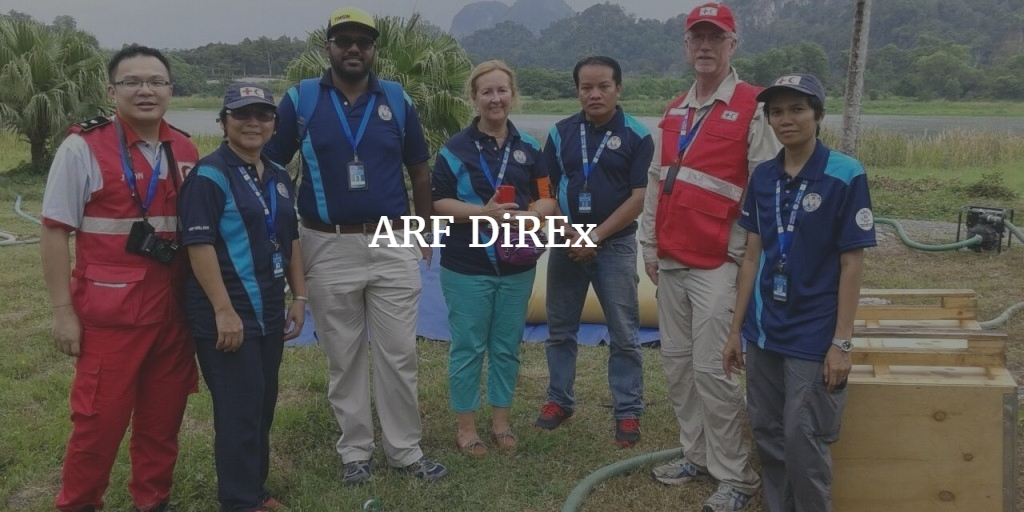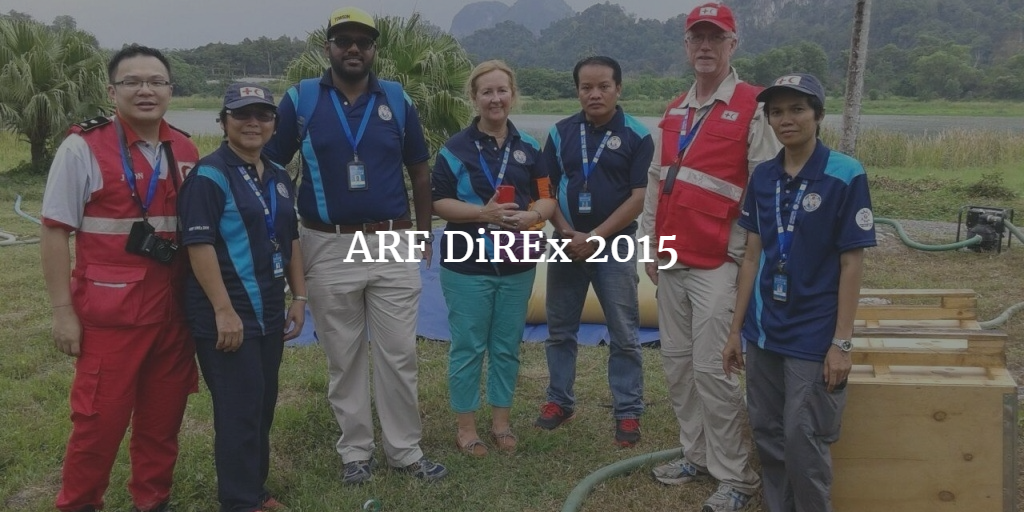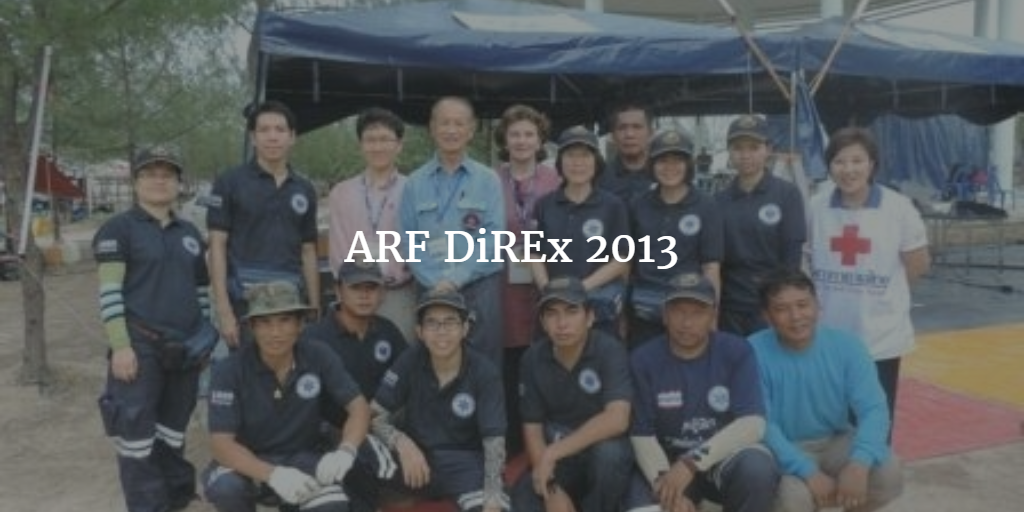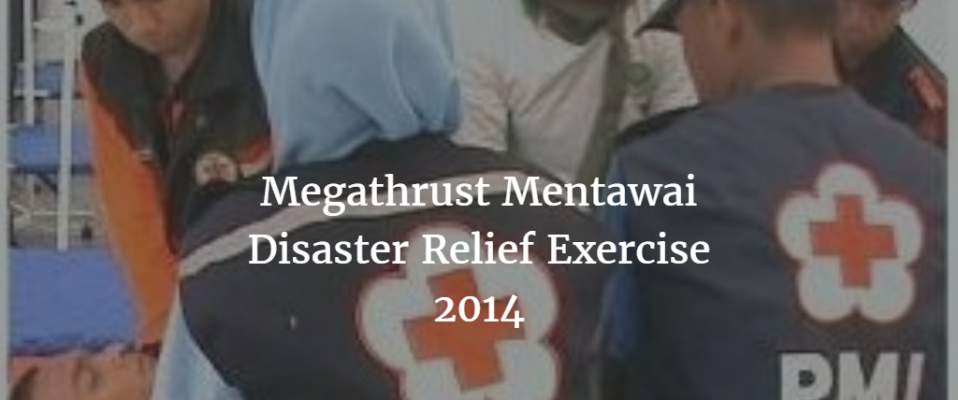
Mentawai Megathrust Disaster Relief Exercise was initiated by the President of the Republic of Indonesia during the East Asia Summit (EAS) held in Bali, 19 November 2011. It was stated Indonesian National Authority Disaster Management (BNPB) to take lead in coordinating and organizing a joint civil-military exercise involving EAS participating countries, namely 10 ASEAN countries, with China, Japan, Republic of Korea, India, New Zealand, Australia, United States, and Russia as a means of building and maintaining cooperation in disaster emergency response.
NDMA (BNPB) organized Mentawai DiREx with military civilian context with the aim of improving preparedness and raise gradually, especially in the priority areas from 17-23 March 2014 in Padang and Mentawai, West Sumatera, Indonesia. Tsunami is the scenario of the Drills. The main theme of Mentawai DiREx is to strengthening collaboration and partnership in disaster response to build a resilient region. The objective of the Direx is strengthening the capacity of preparedness through information and experience sharing, enhances international cooperation to overcome bottleneck and to strengthen the interoperability among stakeholders to enhance regional disaster resilience.
PMI involvement in DiREX: PMI has been actively participating along with BNPB since the beginning of planning phase for this event. PMI is involved as part of senior controller on CPX and After Action Review (AAR) team. In addition, Health, Wash, First Aid and Evacuation will be the main responsibility of PMI for FTX to support BNPB efforts in the exercise. PMI will also involve in few side events like First Aid Service and stand by Blood donor bus. Total 110 volunteers and staff members – both from local branch as well as HQ – will be part of this exercise.
Output of this activity include:
- Effective information sharing mechanism in regional disaster management.
- Improved regional capacity, collaboration and partnership in disaster management through debottlenecking.
- Tested procedures in receiving foreign aid (civil and military) in Indonesia during disaster response and improved collaboration among participating countries in the region in managing large-scale disaster;
- Tested interoperability between incident command system in the impacted country, in this case Indonesia, and systems/procedures in other countries in the region as well as regional (AHA Center) and international organizations such as UN OCHA in delivering aid.
- Humanitarian Civic Action, comprising Karya Bhakti (voluntary work) for DRR and Bhakti Sosial (social work service) for Humanity, to provide real support to local community in improving disaster resilience.
- Involvement of stakeholders at Local (Regency/City/Province), National and Regional/International, from both government and non-government sectors.
See the concept note and report of PMI participation.
![]()


